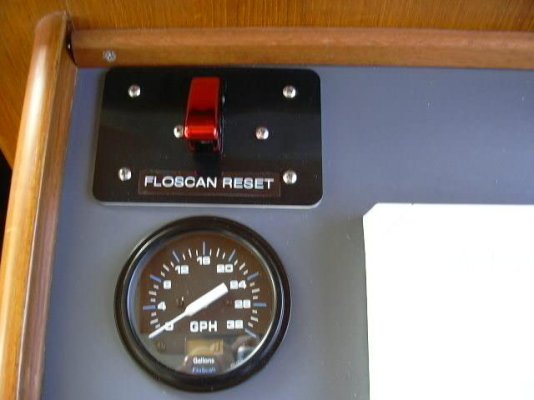One can get into trouble at both ends of the power spectrum. Run an engine hard and it will shorten its service life. Run it too easy and while the life of the engine may or may not be affected, its reliability will likely be reduced with the need for more frequent maintenance.
Willy made a valid point earlier and that was that running an engine hard may not have any adverse effect during the time the engine is in his possession. This is the assumption behind the film industry's mantra, "Trash the rental."
But if by choice or necessity a person runs old or used equipment--- our boat and the de Havilland Beaver we fly are good examples, both have had a number of previous owners--- the treatment the engine(s) received becomes very important.
With respect to marine diesels it's been my observation that the main proponents of the "run them at 10% below WOT all day" theory are people who have nothing to lose if you do this and your engine fails. Steve D'Antonio is not responsible if I follow the advice he expouses and one of our Lehmans burns a hole in a piston or whatever. The "run them as though you hate them" proponents can spout this theoretical stuff with no consequences to them. It looks cool in the magazine articles and people hang on this crap like it's gospel.
But the people I know or have known--- back country pilots, long-time commercial fishermen, log truck drivers--- whose livelihoods actually depend on their engines operating reliably for a long, long time with minimal maintenance and repair expenses---- every one of them has told me--- often fairly emphatically--- "take it as easy on your engine as you possibly can."
Given the choice of giving credibility to magazine writers, armchair engine "experts," and the like who expouse a lot of theoretical formulas based on Lord knows what or following the advice of people I've met who make a living by keeping the engines they depend on running reliably as long as they possibly can, I'm going to stick with the people who've who've gotten 20,000-plus hours out of a Ford Lehman 120, or racked up many thousands of hours in reciprical-powered airplanes without so much as a hiccup from an engine, or my friend in Hawaii with the tuna fleet who gets pissed off if he doesn't get at least 30,000 trouble-free hours out of the diesels in his 70' longline boats. The "secret" all these folks have told me when I've asked them about it, is to take it easy on the engine.
As Bob Munro, a founder of Kenmore Air and arguably one of the best Beaver pilots ever in addition to being an outstanding engine (aviation and marine diesel) mechanic said when I asked him how to maximize the life of an engine, "A piston is only going to go up and down so many times. The easier you can take it on the engine, the more times that piston will go up and down."
-- Edited by Marin at 01:36, 2008-12-02

